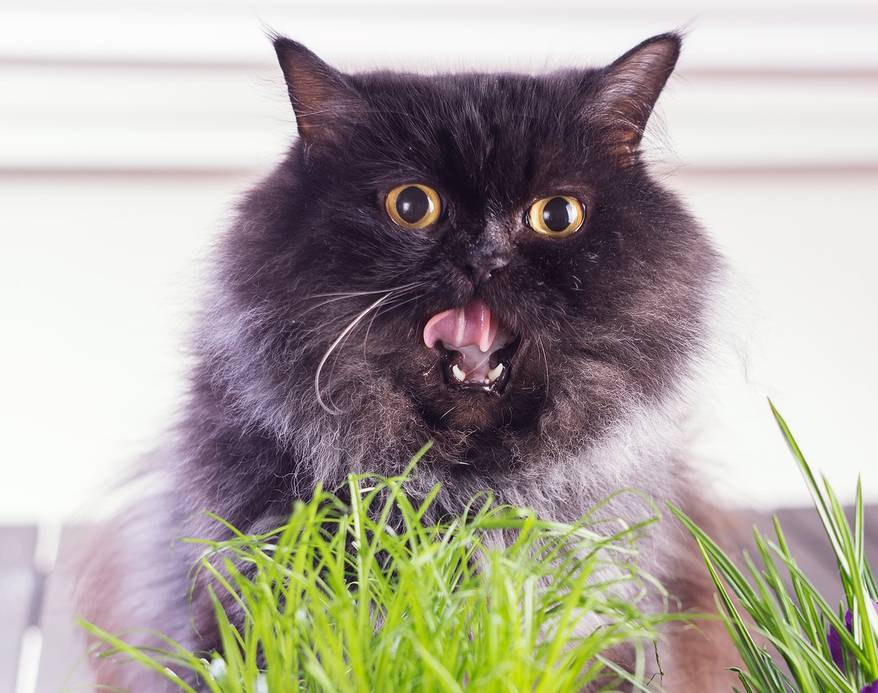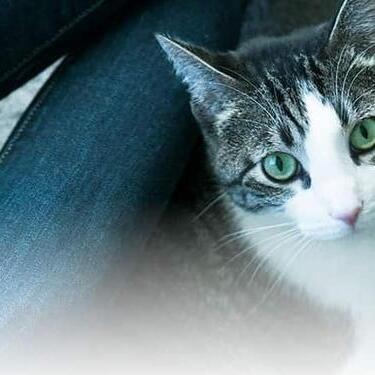
-
Find the right food for your pet
Take this quiz to see which food may be the best for your furry friend.
Find the right food for your pet
Take this quiz to see which food may be the best for your furry friend.
Featured products
 Adult Healthy Cuisine Roasted Chicken, Carrots & Spinach Stew Dog Food
Adult Healthy Cuisine Roasted Chicken, Carrots & Spinach Stew Dog FoodDelicious roasted chicken paired with tender vegetables in a succulent stew
Shop Now Adult 7+ Perfect Digestion Chicken, Whole Oats & Brown Rice Recipe Dog Food
Adult 7+ Perfect Digestion Chicken, Whole Oats & Brown Rice Recipe Dog FoodScience Diet's breakthrough nutrition supports ultimate digestive well-being & healthy microbiome for dogs age 7+
Shop Now Small & Mini Savory Stew with Chicken & Vegetables Dog Food
Small & Mini Savory Stew with Chicken & Vegetables Dog FoodA delicious complement to the nutrition of Science Diet Small & Mini 7+ dog food
Shop NowFeatured products
 Adult Savory Entrée Can Variety Pack Cat Food
Adult Savory Entrée Can Variety Pack Cat FoodPrecisely balanced nutrition with the delicious taste of savory minced chicken to help fuel the energy needs of cats during the prime of their life
Shop Now Adult 7+ Tender Tuna Dinner Cat Food
Adult 7+ Tender Tuna Dinner Cat FoodWith delicious chunks in a decadent gravy
Shop Now Adult 7+ Senior Vitality Chicken & Vegetable Stew Cat Food
Adult 7+ Senior Vitality Chicken & Vegetable Stew Cat FoodImproves Everyday Ability to Get Up & Go
Shop Now -
Dog
- Dog Tips & Articles
-
Health Category
- Weight
- Food & Environmental Sensitivities
- Urinary
- Digestive
- Joint
- Kidney
-
Life Stage
- Puppy Nutrition
- Adult Nutrition
- Senior Nutrition
Cat
- Cat Tips & Articles
-
Health Category
- Weight
- Skin & Food Sensitivities
- Urinary
- Digestive
- Kidney
-
Life Stage
- Kitten Nutrition
- Adult Nutrition
Featured articles
 Do Dogs and Cats have Belly Buttons?
Do Dogs and Cats have Belly Buttons?Learn whether cats & dogs have belly buttons like humans, what the function is, and if there are any health concerns associated with it.
Read More Why Are Dogs and Cats So Cute?
Why Are Dogs and Cats So Cute?If waggy puppy dog tails and furry kitten yawns make you swoon, you're not alone. Why are cats so cute? And, dogs too! Let's find out!
Read More Does My Pet Hate Me?
Does My Pet Hate Me?Learn tips for bonding with your pet if you've ever thought, 'My dog doesn't like me, or 'Why do I have a standoffish cat?'
Read More -


No pet parent likes to hear that sound: the hacking noise from the other room that tells you are going to have a mess to clean up. When your cat starts gagging, the first thought that might go through your head is, "Oh no, what did they get into now?" There are many reasons why your cat might throw up, some of them more serious than others. As a new pet parent, it is important to know the reasons your cat may be vomiting and when an upchuck warrants a visit to the veterinarian.

Hairballs: A Common Cause of Cat Vomiting
Even as a seasoned cat parent, it is important to understand the reasons behind cat vomiting. As cats age, their bodies change and vomiting may indicate something is abnormal..
Although cat vomiting might be due to eating a part of a houseplant or ingesting a piece of a toy, your cat can get an upset stomach from ingesting hair fromgrooming. This most often resurfaces as a hairball.
Although a cat vomiting up a hairball every so often is normal, there are times when you may need to be concerned. Hairballs shouldn't be painful, frequent or difficult for your cat to pass. Untreated hairballs can also go the other way and cause painful intestinal blockages in extreme cases, according to Cornell Feline Health Center , so keep track of your cat's normal routine and watch out for signs of constipation, lethargy, and anorexia if they have not passed a hairball in a while. If your cat has a consistent hairball problem, you might want to look into a cat food that is formulated for hairballs.
Cat Vomit Diagnostic Hacks
A hairball every now and then (often with foamy or yellow liquid) may not be a reason to call your vet, but if your cat starts vomiting frequently or the hairballs are large and seem to be causing your pet discomfort, you may want to have your feline friend in for a checkup.
According to the Cornell Feline Health Center, most vets start by determining if the vomiting is related to hairballs. Then they maymove to discussing possible ingestion of harmful objects or substances in your home. If the cause is not obvious, your vet may recommend additional testing such as bloodwork, a fecal examination or X-rays or an ultrasound to find the problem.
It's helpful to know that most vets will approach cat vomiting this way so that you can gather useful information prior to your appointment. When visit your vet, be prepared to describe your cat's recent surroundings, activities and vomiting frequency and appearance.


Tasty Tips
Other Reasons for Cat Vomit
If your cat barfs, but resumes regular activities, continues to eat and seems otherwise healthy, youmay not have much to worry about. For example, sometimes cats vomit undigested food shortly after eating. This can happen when your pet eats the food too fast. In these cases, you may just need to feed your cat smaller, more frequent meals.
However, in some cases, frequent or excessive vomiting may be the result of a serious condition. A number of different diseases such as kidney and liver disease can cause vomiting. Food allergies, intestinal parasites and infections can also result in vomiting. Testing is needed to help determine the cause and find the best solution to help your cat.
Food Allergies
Some cats can also experience digestive turmoil from food sensitivities and allergies. Pay close attention to any behaviors your cat exhibits before and after eating. Besides vomiting, do they have diarrhea, bald patches or itchy skin? Discuss these observations with your vet and take your vet's advice on food changes and medications that are needed for your pet.
Do not attempt to diagnose your cat's allergy at home, since changing her food on your own could end up upsetting your cat's stomach more if not done properly.
Always err on the side of caution, and if something doesn't seem right, get your cat to the vet immediately. Every cat is different and your vet is the person best qualified to diagnose the underlying issue that is causing your cat to throw up.
Ways to Prevent Cat Vomiting
Wouldn't all pet parents love to know the secret to eliminating vomiting? Or even a way to train your cat not to do it on your bed or carpet? Unfortunately, there's no magic word. But there are a few things you can try to ease your cleanup and your kitty's discomfort.
If your cat is vomiting hairballs, make sure to brush your cat regularly, keeping themactive and feed a food with balanced nutrition that is designed to help cats with hairballs.
To help keep your cat’s stomach happy, give them the type and amount of food recommended by your vet and have clean, fresh water available at all times. If your cat eats too quickly you can try a puzzle feeder or a dry food with large, crunchy pieces to slow them down. If your veterinarian recommends medications or therapeutic foods, it will be important to follow their instruction in order to keep your cat healthy. \ Be sure your cat sees the vet regularly and discuss your concerns.
Though cleaning up messes and bodily fluids is something all pet parents will experience at some point, following these tips and knowing when to seek the help of a professional can hopefully make these experiences few and far between.


Chrissie Klinger is an educator, writer and mother of two children, three dogs and three cats. Her dog Jake loves sitting on her lap every chance he gets! She enjoys living an active and eco-friendly lifestyle in rural Pennsylvania.
Related products

Improves Everyday Ability to Get Up & Go

With delicious chunks in a decadent gravy

Precisely balanced nutrition with the delicious taste of savory minced chicken to help fuel the energy needs of cats during the prime of their life

Supports energy level and beautiful fur in mature cats
Related articles

Discover which cat toys games your feline friend might like, and how they are great sources of exercise. Explore our library of articles to learn more.

Discover how to identify cat sensitive skin and what you can do to help your cat thrive from head to paw.

Brushing your cat's teeth is just as important as brushing your own. Learn signs or oral health problems in your cat and how to avoid them.

Discover the benefits of Hill's line of kitten foods and how they provide complete and balance nutrition for growing kittens.

Put your cat on a diet without them knowing
Our low calorie formula helps you control your cat's weight. It's packed with high-quality protein for building lean muscles, and made with purposeful ingredients for a flavorful, nutritious meal. Clinically proven antioxidants, Vitamin C+E, help promote a healthy immune system.
Put your cat on a diet without them knowing
Our low calorie formula helps you control your cat's weight. It's packed with high-quality protein for building lean muscles, and made with purposeful ingredients for a flavorful, nutritious meal. Clinically proven antioxidants, Vitamin C+E, help promote a healthy immune system.

